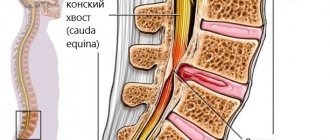Senile dementia in men - a common occurrence after 60 years. It is important to notice the first signs of how your loved one is changing. The sooner you consult a doctor with complaints, the faster the diagnosis will be made and the more effective the treatment will be. Honey offers modern methods of therapy that will help stop the process and improve the quality of life of patients.
What is dementia in older men and its causes
Dementia (dementia) is a disease characterized by a set of symptoms that appear as a result of pathological processes in the tissues of the brain. A person experiences memory deterioration, thinking disorders, and loss of habitual skills to such an extent that they complicate everyday life and normal work. The older a person is, the higher the risk of getting sick.
The cause of the disease can be:
- natural aging processes;
- pathologies of the thyroid gland;
- vascular disorders (ischemia, hypertension, atherosclerosis, etc.);
- neurological disorders (stroke, head injury);
- intoxication with alcohol or drugs;
- chronic poisoning with toxic substances;
- a brain tumor.
As can be seen from the reasons, dementia can be age-related and early - developing in young and middle age.
Physiological causes of the disease
Experts in the field of gerontology and developmental psychology recognize that senile dementia is a consequence of several reasons:
- general “wear and tear” of the body in general and the brain in particular;
- diffuse atrophy of the cerebral cortex, accompanied by morphological disorders;
- unfavorable heredity;
- a history of severe vascular diseases causing damage to the central nervous system.
As a rule, after the death of a patient who has experienced the symptoms of senile dementia, it turns out that his brain has significantly lost mass, the number of nerve cells has decreased, the convolutions have become thinner, while the grooves and ventricles, on the contrary, have increased, filled with fluid. Another internal manifestation of the disease is the formation of senile plaques. By this term, doctors understand areas of nerve cells affected by amyloidosis. Plaques are also found in pensioners who are not subject to psychopathic changes, but in this case they are not diagnosed so intensively.
How it starts, main signs
The first signs appear after 60 years. There is an interesting feature - the risk of dementia doubles every 5 years. Among the elderly after 70 years, the proportion of patients is about 25%, after 80 years - every second one. It is important to pay attention to the early signs of dementia. After all, they are noticeable 5-10 years before the appearance of clear symptoms of the disease itself! If you learn to notice them, you can help your loved one in time.
Be sure to consult with your doctors if your loved one:
- O - forgets the day of the week, buy food, where he left his glasses.
- Has great difficulty remembering new information.
- Old, “dear to the heart” memories are easily recalled, but what happened yesterday is forgotten.
- Complains of absent-mindedness and fatigue.
- Speech becomes impoverished, forgets simple everyday words.
- Does not understand jokes and proverbs without prompting.
- Likes to tell the same stories and ask the same questions without delving into the interlocutor’s answer.
- He gets lost in a familiar place and doesn’t find his way home.
- Has a violation of planning and sound criticism: dresses inappropriately for the weather, goes outside in a dressing gown.
- Confused about money and unable to count change correctly in a store.
- Forgets to eat.
- He neglects changing clothes and wears the same clothes day after day.
- Laughter gives way to tears (weakness).
- Notices physical weakness due to forgetting to eat and not feeling thirsty.
Over time, a loss of interest occurs, and as a protective reaction of the body, there is a fear of everything new. 30% of sufferers experience mild symptoms of depression (insomnia, decreased or decreased appetite, anxiety). This allows you to suspect “something is wrong.” Further manifestations of depression become more severe. The person does not believe in the success of the treatment, is sad, often cries from the hopelessness of the situation, grief, and does not understand what is happening to him. At first, he denies all symptoms and explains them by “external circumstances.” It is important to know that with this combination of symptoms there is a high risk of suicide attempts.
Patients with senile dementia: a view from another world
It is very important to understand what the patient is experiencing. At a minimum, so as not to aggravate the condition. We have already said that this reality gradually disappears from his perception, but desires remain. Despite senile dementia, the patient will try with all his might to realize his nature. And if it has several vectors, you will see their manifestations in all their glory.
The owner of the skin vector may strive to control everything. Especially if he is a former leader. There is no need to completely deprive him of this opportunity. This is in addition to total saving and hoarding, which have already been mentioned. Be patient, you will still have time to throw away a bag of unnecessary rags or a piece of iron - do not do this in the presence of the patient. For him, these are real values that give him a feeling of security and safety.
For a person with an anal vector, home is important. A woman is the mistress, and a man is the master of the house, this is his territory, his fortress. This fortress is strong for its constancy and measured way of life. Try not to rearrange furniture or outweigh things unless absolutely necessary. The world of a person with an anal vector rests on the immutability of the structure - the environment. Familiar things remind us of the past. He is alive as long as the past holds him. The new will most likely remain outside his reality. The second thing that can hold his consciousness is family ties, although these threads are gradually becoming thinner.
In addition, patients with senile dementia with an anal vector, although at least partially understanding what is happening, may experience a strong sense of guilt towards their relatives for their condition. After all, they will no longer be able to “repay the debt” or repay the care.
Men with an anal vector especially suffer from the loss of their masculinity. The one whose role is to be the head and protector of the whole family takes the loss of this status very hard. “Men must endure hardships with fortitude!” And here he is changed like a little child, scolded for wet sheets and scattered things. Shame! And it is unbearable for him to disgrace himself. Try not to show a negative attitude towards his actions, because in his perception he is right.
Senile dementia. How can relatives not go crazy?
No matter how difficult it may be for you, pay attention to your desires. Figure out what bothers you the most. After all, having found out how senile dementia manifests itself and how long people live with such a diagnosis, it is better to prepare in advance for a long struggle.
If you have a skin vector, it means you also don’t mind keeping everything under control. And this is difficult to do: even with a good understanding of what to expect, it is difficult to avoid some element of surprise. Let go of the tension a little, take for granted the future costs of restoration and the purchase of new things. You cannot live for another, let him end his life as a free man, without feeling like he is in prison.
It is difficult for the owner of the skin vector to survive the loss of time. A patient with dementia takes a long time to remember words, formulates a thought for a long time - he does everything unbearably slowly. You will have to accept this as a given. On the other hand, while he is completing some simple task, you may well have time to make the bed, prepare the table for food, and much more. The main thing is not to push him. This will only slow down the process even more. Especially if the patient has an anal vector.
The anal vector even in healthy people suffers from forced fuss. When there is a person with senile dementia in the house - what to do, the number of worries increases and a measured life comes to an end. But those with the anal vector have a wonderful trait - caring and respect for elders. Don't rush, don't try to do everything perfectly. Just show care as only you can. Surround your relative with warmth and peace. Show gratitude for all the good things that connected you in the past. And it’s not so scary if something turns out to be unwashed or unprepared - spiritual closeness is much more important!
Your visual vector may suffer from bad odors, lack of positive emotions, and fears. Inevitably, every person tries the situation on himself. And especially a visual person. But it is he who has the ability to love and compassion, alleviating any suffering. Fill the last years of your loved one's life with joy and bright impressions. Brew tea, sit down at the table together. Or just sit next to them and share your good impressions of today.
I understand everything... But he infuriates me!
The main problem is that by force of will it is impossible to force yourself to either “treat with understanding” or “show love and compassion.” Moreover, if a family member is diagnosed with senile dementia, additional conflicts often arise between other relatives. It's exhausting and irritating.
We are all living people with our own problems. Everyone has something from the traditional set in their arsenal of problems, depending on the available vectors: grievances, negative scenarios, fears, depressive states. And if during prosperous periods of life they are not too burdensome, during periods of stress they bloom in magnificent colors. And caring for a patient with senile dementia is a serious and, as a rule, long-term stress.
Don’t reduce your reality to the walls of your apartment. Be sure to communicate with friends, cook delicious food for the whole family, and find time at least once a week for your favorite activities. Believe me, no patient wants to see sad, irritated or frightened people next to them. Even if he suffers from senile dementia, he does not remember yesterday and recognizes few people.
Yuri Burlan’s free online training “System-vector psychology” will be a good support here.
. You will be able to understand both your reactions and the behavior of all family members. This way you will be able to look at the situation soberly, bypassing the interpretation of your perception. By understanding the real causes of negative states, you will get rid of many of them. Your attitude towards what is happening will change.
You will be surprised to discover that people with senile dementia know how to laugh, react with pleasure to simple jokes and do not “deliberately annoy you.” Moreover, your positive attitude significantly speeds up any complex procedures that require the patient’s consent. Try changing a diaper for a physically quite strong guy who doesn’t want it at all, and you’ll understand what I mean.
Kinds
Dementia acts as an independent disease or accompanies others. There are several varieties:
- Alzheimer's disease. This is the most common form of dementia in men over 60 years of age. It is characterized by increasing forgetfulness of current affairs with retention of memory for ancient events. For a long time, the only symptom observed is forgetfulness.
- The vascular form is the second most common. Risk factors include smoking, male gender, high cholesterol. Such patients suffer from high blood pressure, coronary heart disease and diabetes. They often have a history of strokes, heart attacks, and changes in the retina of the eyes. Memory impairment is not as severe as in Alzheimer's disease. The onset of the disease is acute.
- Mixed form. It is more malignant - vascular disorders worsen the course of Alzheimer's disease.
Diagnosis of senile dementia
In case of memory disorders, disturbances in mental processes, changes in human behavior, frequent mood changes, before starting treatment, you should consult a general practitioner. He will analyze the patient's complaints, examine him, and assess his mental state. If necessary, he will refer you for a consultation to a specialized doctor, who will make an accurate diagnosis and prescribe treatment.
Diagnosing a decline in brain processes at the initial stage includes answering easy speed questions, solving simple arithmetic problems, and listing events that have occurred in the recent past. At this stage it is too early to prescribe any treatment.
The final conclusion about senile dementia is made based on typical symptoms that persist for 6 months or longer.
It is also necessary to find out whether any of the relatives suffered from mental disorders or senile dementia. Accurate results of disorders are obtained using MRI and ECG. Infectious causes are identified using a lumbar puncture (lumbar puncture). Such disorders cannot be detected using a general blood test.
If the patient has diseases, including chronic ones, special medical examinations are also prescribed, depending on the symptoms. Various studies are being done to rule out false dementia. After all examinations, a treatment program is developed.
The likelihood of stopping the progression of the disease increases if you notice the symptoms in time, undergo diagnosis and begin therapy.
We recommend
“Adaptation of older people: in modern society and boarding homes” Read more
Stages
This disease has several stages:
- The first is the most inconspicuous and, perhaps, the most insidious. It practically doesn't show up at all. If you are attentive to a man, you will notice that a person close to you begins to forget some things, behaves unusually, and sometimes cannot complete a simple assignment.
- The second is perhaps even heavier than the third. Precisely for relatives caring for them. The patient no longer remembers loved ones, does not always recognize himself in the mirror, leaves the apartment on his own or completely refuses to leave it. Periodically forgets where the toilet is in the apartment, how to brush his teeth, take a shower, and becomes more irritable. He ceases to be interested in books, cinema, television, theater, and concerts. Possible weight loss.
- The third stage is the last. As a rule, the patient stops getting out of bed, loses his appetite, and requires constant care.
Dementia in men - how to help your husband or loved one
What to do if your husband has dementia? As a rule, wives notice the first signs. Because in old age, the children have long since moved away, but the spouse remains nearby.
Suspecting something was wrong:
- Contact the Leto clinic. Our specialists will assess the patient’s condition and develop the most effective tactics for further action.
- Go to your appointment already prepared - with examinations performed (MRI of the brain or X-ray of cerebral vessels).
- Decide to live together. At least starting from the second stage of the disease, this cannot be avoided.
- Closely monitor your medication intake. This will delay the onset of the next stage of the disease as much as possible.
- At least once every two years, be sure to visit the specialist you contacted to correct your treatment. This disease progresses, and the doses of the devices taken need to be increased.
- Don’t forget to give your man some easy tasks: sweep the floor, wash the dishes, dress or undress yourself, wash your face, brush your teeth. Sing old songs with him, turn on your favorite music, do some modeling or putting together puzzles.
- At all stages, provide emotional support and encouragement.
- Be prepared for the upcoming changes in life.
- Do not allow the use of a personal car, recommend public transport, take care of a personal driver.
- Come together or bring your husband to special support groups.
- Maintain hydration and remind your spouse about water.
- Monitor his overall physical health.
- Learn more about community support resources.
- If you have difficulties with simple household chores, explain slowly and show how to do it.
- Leave things in their original places.
- Read one book, watch a movie, and then discuss.
- If necessary, put reminders on sticky notes in capital letters.
- You're kidding! Humor prolongs and improves life.
How you can help your doctor
For diagnosis, it is very important to know what happened and what happened. Stories from loved ones and colleagues will help with this. After all, it is necessary to understand whether a person had a rich vocabulary or not. There are very subtle differences between dementia and normal aging changes.
Before your visit, try to remember and write down some points related to your husband’s dementia.
- What prevents you from living with a person with dementia and what does he complain about?
- Note significant events that have occurred recently (retirement, children's weddings, birth of grandchildren, loss of loved ones).
- Make a list of all the medications the patient takes (medicines, vitamins, food supplements).
- Have you ever had dementia in your family?
- Previous operations, recent illnesses (take all the necessary papers).
- When the symptoms appeared, were they constant, what brought relief?
Cost of services
| CONSULTATIONS OF SPECIALISTS | |
| Initial consultation with a psychiatrist (60 min.) | 6,000 rub. |
| Repeated consultation | 5,000 rub. |
| Consultation with a psychiatrist-narcologist (60 min.) | 5,000 rub. |
| Consultation with a psychologist | 3,500 rub. |
| Consultation with Gromova E.V. (50 minutes) | 12,000 rub. |
| PSYCHOTHERAPY | |
| Psychotherapy (session) | 7,000 rub. |
| Psychotherapy (5 sessions) | 30,000 rub. |
| Psychotherapy (10 sessions) | 60,000 rub. |
| Group psychotherapy (3-7 people) | 3,500 rub. |
| Psychotherapy session with E.V. Gromova (50 minutes) | 12,000 rub. |
| TREATMENT IN A HOSPITAL | |
| Ward for 4 persons | 10,000 rub./day |
| Ward for 3 persons | 13,000 rub./day |
| Ward 1 bed VIP | 23,000 rub./day |
| Individual post | 5,000 rub. |
| PETE | 15,000 rub./day |
This list does not contain all prices for services provided by our clinic. The full price list can be found on the “Prices” , or by calling: 8(969)060-93-93. Initial consultation is FREE!
Treatment of dementia in men at the Leto clinic
As a rule, with age-related dementia you have to deal with several diseases, so the treatment plan is selected strictly individually. The therapeutic regimen takes into account measures aimed at treating the underlying disease and normalizing blood pressure. Particular emphasis is placed on improving cerebral circulation. With the development of psychotic disorders, antidepressants, antipsychotics, and anticonvulsants are indicated.
You need to understand that prescribed drugs only slow down the development of the disease. In most cases, a man with dementia will no longer go to work and will never be the same as he was before. But he will be able to take care of himself independently, he will understand where he is and who is next to him. This will change your life too. The sooner you start taking the medications, the faster the effect will be visible. Even at the advanced second stage, you can achieve good results only over a longer period. Much attention is paid to psychotherapy and training in nursing skills.
Are you facing dementia in older or middle-aged men? Just dial 8(969)060-93-93 . We provide assistance both in the hospital and at home.
Methods of treatment and prevention
Senile dementia requires special care, since effective treatment methods do not exist today and it is impossible to completely stop the development of the disease. An elderly person needs to adhere to a special dietary regimen rich in vitamins and microelements, walk daily and receive age-appropriate physical activity. Hygiene is of great importance: the skin should always be clean, and you also need to monitor the condition of your hair and nails. The best place to provide comprehensive care is in specialized nursing homes for older people with dementia, where staff are trained to care for these patients.
Comments on the article (0)
back to article list








